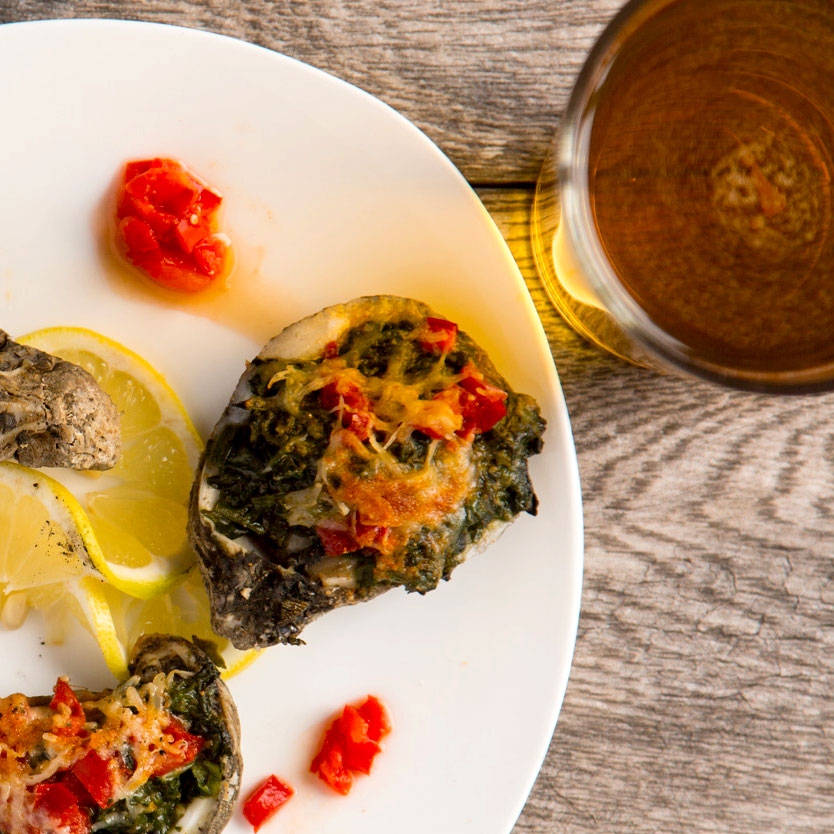Are Gulf Oysters Safe to Eat?

I don’t know about you, but when I’m visiting Orange Beach, there’s nothing like enjoying a heap of fresh oysters. They’re savory and succulent, and there are so many preparations you can try (BBQ, Rockefeller, Chargrilled, Fried, Baked…).
Recently, I was out enjoying a meal with a friend and his wife joked about how sick I was going to get from eating my giant helping of oysters. I was clearly unfazed, as I ate the oysters one by one.
Later that night, as I was preparing for sleep- I just couldn’t stop thinking about what she said over diner.
So, are Gulf Oysters really safe to eat?
According to the textbook: If you know what to look for and you’re eating at a nice restaurant – you don’t really have anything to worry about. Of course- which drink you’ll want to pair your oysters with is a completely different story (Bloody Mary, anyone?)!
But I digress. Anyway, To prove my friend’s wife wrong (and display all of my newfound research), I’ll go on to some facts:
Raw Oyster Risks
Not as many as you think, Karen.
In the last few years, there has been renewed concern about consuming raw oysters. Why? Two types of bacteria that naturally (naturally as in, since before we can remember) occur in oysters— Vibrio vulnificus and Vibrio parahaemolyticus— can cause health issues.
However, such issues are extremely rare. In fact, most people can consume Vibrio with no adverse reaction whatsoever. Vibrio tends to have negative effects only on people with certain pre-existing health or immune conditions.
If you’re not sure how Vibrio will affect you or your family, experts recommend talking to your doctor. Your physician can tell you if there are any risks to including raw oysters in your diet, and can suggest alternative preparations if you’re overly concerned.
The honest shuckin’ truth
Solid facts about Gulf Oysters.
- Keeping oysters cool prevents the spread of bacteria. Vibrio can only live and reproduce in warm conditions. Proper refrigeration and preparation are two simple ways we can make sure Oysters are safe to eat.
- Many Gulf Oysters are now bred sterile. That means that even during the warmer months (when the risk of Vibrio spreading would be highest), most oysters bred in the Gulf region are not reproducing naturally. That keeps Vibrio from reproducing, too. We love oyster farmers!
- Oyster harvesting is prohibited in Red Tide, when harmful bacteria and toxins are most likely to be produced or absorbed by Gulf Oysters, which is why we source from local oyster farmers when the season isn’t ripe for the picking!
- Even if you have a condition that may make consuming Vibrio bacteria unsafe, cooking Gulf Oysters kills the bacteria, and removes the associated risks. If your favorite restaurant is only offering raw oysters during your visit, other seafood favorites (like crab, fish, and lobster) are a great alternative. That means everyone, regardless of dietary needs, can enjoy a delicious beachside meal.
So shuck on, you crazy diamonds!
Alabama has some of the highest health and safety standards for oyster production and harvesting in the United States. The Gulf Coast of Alabama is actually one of the best places to eat oysters.
In fact, one my favorite times to enjoy oysters would have to be in November at the Oyster Cook-Off in Gulf Shores, Al.
Something for everyone
We have delicious options for everyone, and a seasonal, rotating menu makes every meal unique and exciting. Our knowledgeable staff is ready to help you choose the perfect seafood meal for your dietary needs- All you have to do is come hungry!